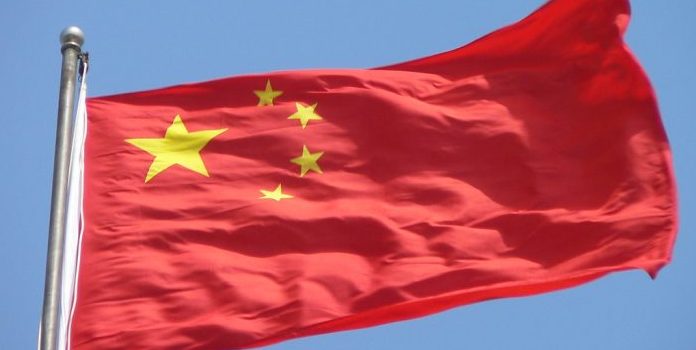(Kenneth Schrupp, The Center Square) Since 2022, California’s main state pension fund has committed hundreds of millions of dollars to a Chinese venture capital firm that has been investigated by Congress for its close ties with the Chinese Communist Party.
Experts warn these investments are not only risky, given China’s record on property rights and growing economic challenges, but undermine the security of the United States and its allies.
“CalPERS should not be investing in China because in China, the Communist Party takes a stake in every major company,” said Diana Furchtgott-Roth, who is director of the Heritage Foundation’s Center for Climate, Energy, and the Environment, in an interview with The Center Square.
Since 2022, the California Public Employee Retirement System has committed $282 million to HongShan, a Chinese venture capital firm that was formerly the Chinese branch of American venture capital titan Sequoia, state records show. $59.3 million of that has been invested, with an estimated loss of $7.7 million as of March 31, 2025. Management fees paid to HongShan for the fiscal year ending on June 30, 2024, the first and latest year for which data is available, were $3.3 million.
HongShan was investigated by the House Select Committee on the Strategic Competition Between the United States and the Chinese Communist Party, with a 2024 report detailing the high volume of now-HongShan investments linked to the Chinese military and human rights abuses.
These include investments in Bytedance, which owns TikTok, and Yitu, a facial recognition software firm used by the Chinese government and blacklisted by the United States Treasury Department in 2021 for its involvement in human rights abuses against the Uyghur minority. It also includes Qihoo 360, a “military-civilian PRC enterprise focused on cybersecurity that has been blacklisted by the Commerce Department and Defense Department over its support for the [People’s Liberation Army].”
The report also noted that while Sequoia split its China business into HongShan in 2023, the split “may insulate some types of capital flows from regulatory scrutiny they would have otherwise been subject to.”
The report details that while many kinds of technology transfers from the United States to China were and are banned, American funding of Chinese companies generally was legal, at least until a 2023 executive order from President Joe Biden started to place some limits on outbound American investment in “countries of concern” regarding “national security technologies” and related products.
CalPERS responded to financial and geopolitical concerns by stating it actively monitors investment regulations and chooses responsible investment managers.
“CalPERS is a global investor that looks for opportunities across national boundaries and business sectors to deliver the returns needed to provide retirement security to our more than 2 million members,” said CalPERS information officer Abram Arredondo to The Center Square in an email. “We closely monitor discussions in Washington D.C. to comply with government requirements on investments overseas. CalPERS also conducts a rigorous selection process for managers and regularly engages with them to ensure our investments are being responsibly overseen.”
Beyond national security, Furchtgott-Roth says investing in China exposes foreign investors like CalPERS to undue risks.
“It’s possible that CalPERS thinks they can get a greater return than in other areas, but it’s very risky, investing in these Chinese companies, because who knows what China is going to do, and who knows what President Trump is going to do about China, which would send the value of these investments down,” said Furchtgott-Roth. “Already last month, Chinese exports were diminishing, which is going to hurt the Chinese economy — President Trump is already harming the Chinese economy with these tariff threats.”
Furchtgott-Roth also pointed to China’s inverted demographic pyramid — in which an aging population is supported by fewer and fewer young people due to the nation’s one-child policy — as a long-term economic challenge.
Other experts pointed to the aftermath of the financial implosion of Chinese real estate developer Evergrande as evidence that American investors could end up at a significant disadvantage compared to Chinese investors when companies run into financial difficulty.
“Foreign bond investors lost more money than domestic creditors, and that’s the kind of thing that can happen both with debt investments and equity investments — the government can arbitrarily decide to discriminate against foreign investors,” said Marc Joffe, a public finance expert and visiting fellow at the California Policy Center, in an interview with The Center Square.
Joffe also said that in addition to the transparency, liquidity, and high management fee concerns typical of public pension investments in private equity, “the additional dimension in investing in Chinese startups and private companies is the government can just say, hey, you, CalPERS … you’ve made too much money and this is not good for the Chinese people, so we’re going to expropriate you.”
The Center Square recently reported CalPERS’ private equity Clean Energy & Technology Fund lost 71% of the nearly half a billion dollars it invested in the fund, as private equity fund managers raked in tens of millions of dollars, highlighting the risks of public pension investments in private equity.
HongShan did not respond to The Center Square’s requests for comment.

